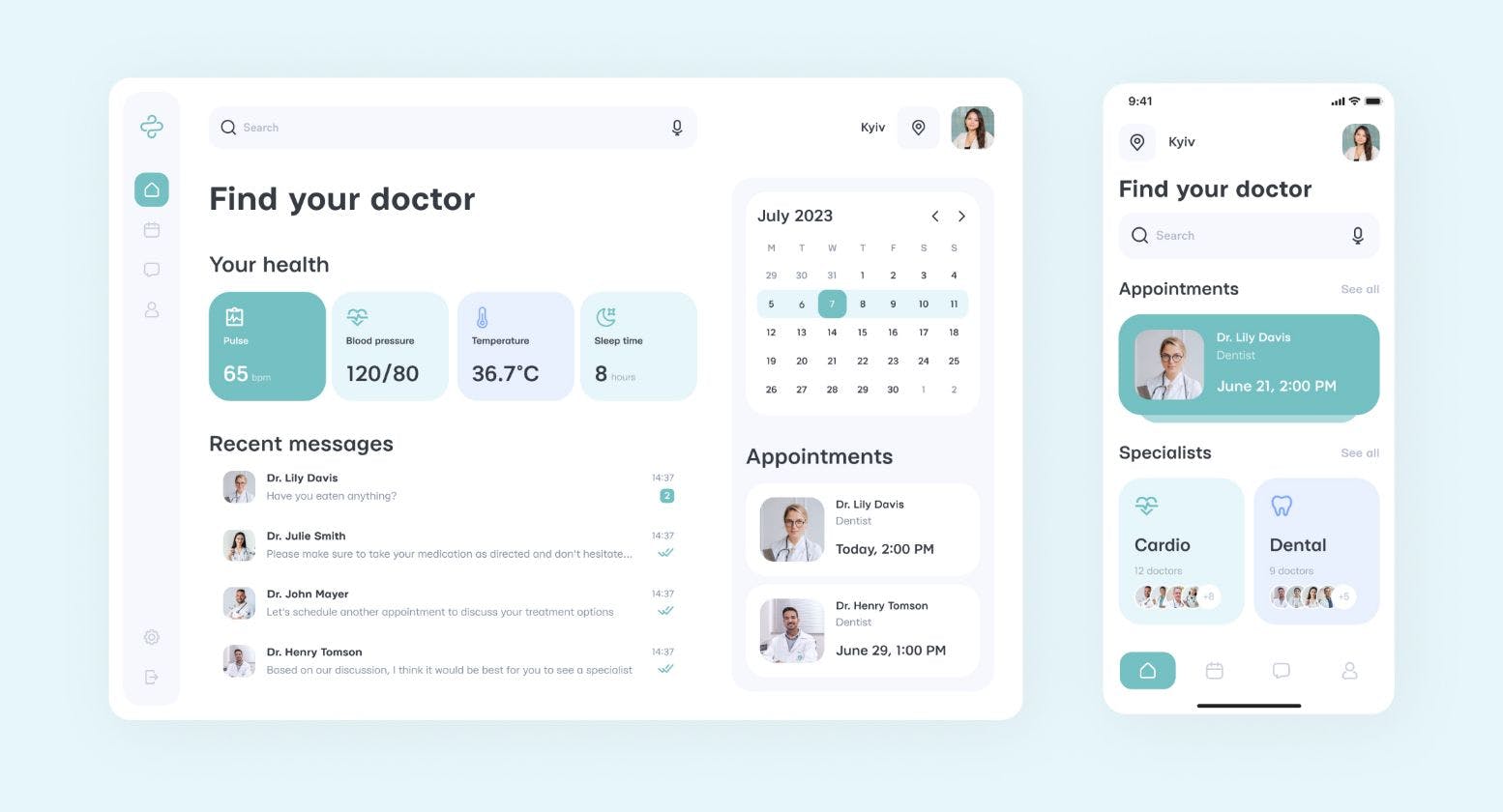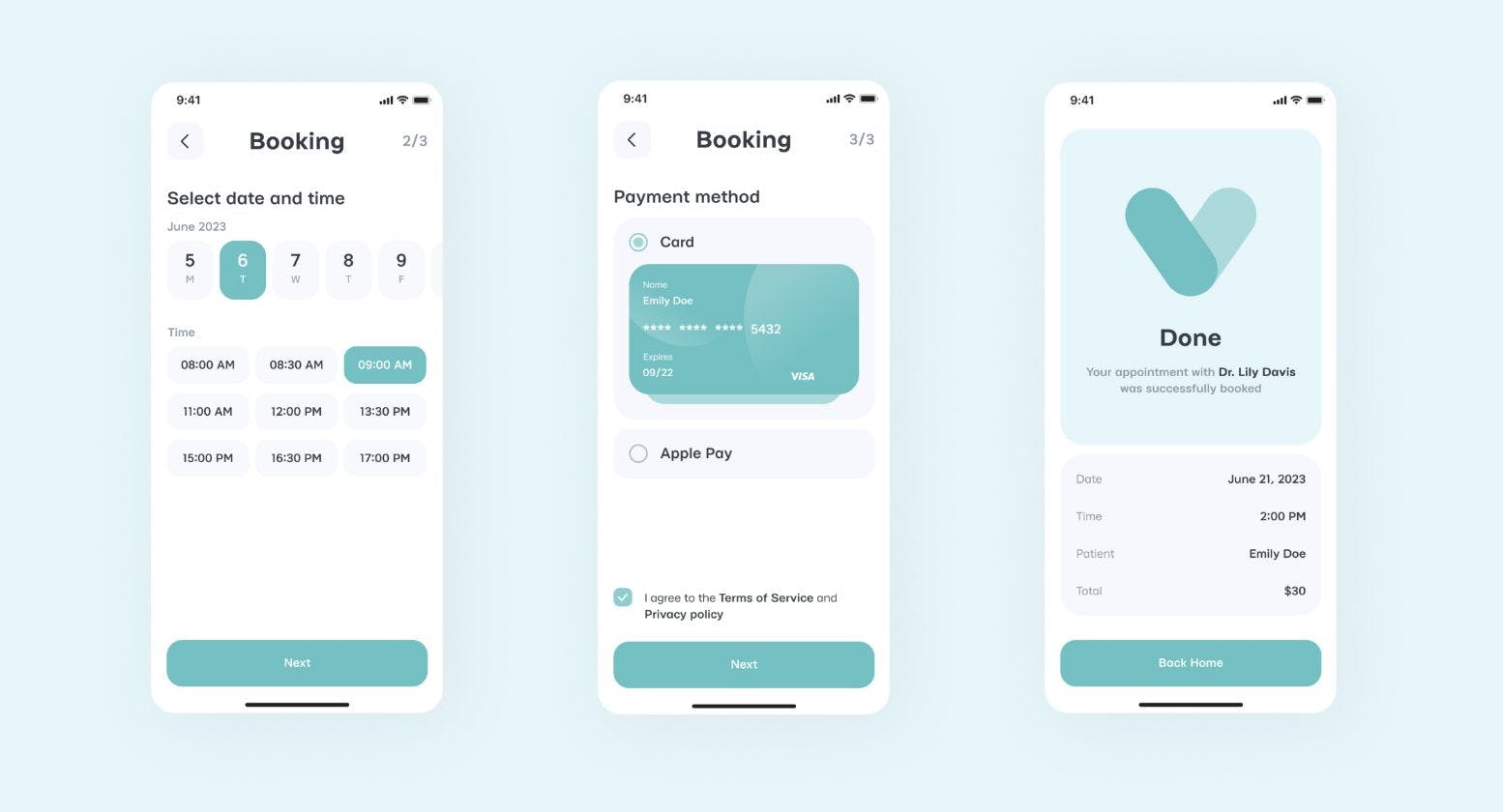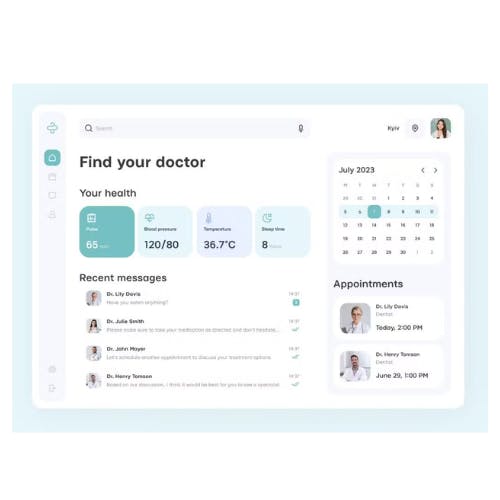How to Start a Telehealth Business: The Guide to Starting a Telemedicine Company
The following article will provide a mini crash course for those looking to start their own telehealth business. It will cover the legal aspects, an overview of how telehealth works, insights into the costs involved and how Voypost can help you succeed
Maria Shapovalova
May 10, 2023
5 min read

Telemedicine, the practice of delivering healthcare services remotely via technology, has seen a significant uptick in usage since the COVID-19 pandemic. As people have become more hesitant to visit healthcare facilities in person, telemedicine provides a way for patients to receive care from home.
This shift towards telemedicine has led to significant growth in the industry, with some experts predicting that the telemedicine market could reach a valuation of $185 billion by 2026. Covid forced many healthcare providers to rapidly adopt telemedicine solutions, resulting in increased investment and innovation in the field.
How does a telemedicine business work
A telemedicine business typically operates through an online telemedicine platform or app (doctor on-demand app) that allows patients to connect with healthcare providers remotely. The platform may include features such as video conferencing, secure messaging, and online appointment scheduling. Patients can use the platform to access medical advice, consultations, and prescription services.

To set up a telemedicine business, the first step is to create the platform or app that will connect patients with healthcare providers. This requires expertise in software development and user experience design. The platform must be secure and comply with all relevant healthcare regulations.
Next, the telemedicine business must recruit healthcare providers to offer their services through the platform. This may involve partnering with existing medical practices or hiring independent contractors. Providers must be licensed to practice medicine in the jurisdictions where the business operates.
Finally, the telemedicine business must develop a marketing and outreach strategy to attract patients to the platform. This may involve partnering with insurance companies or other healthcare organizations, as well as social media and digital advertising campaigns.

Get a Consultation on Telehealth App Development
Get a consultation on Telehealth App Development. Our expertise and professionalism will help you quickly bring your dream app to life and start making people's lives better, happier, healthier!
What do you need to start a telehealth business
Here are key elements to consider when starting a telehealth business:
Certification & licensing
To start a telehealth business, you need to obtain the necessary certifications and licenses. This includes obtaining a National Provider Identifier (NPI), which is a unique identification number for healthcare providers, and an Employer Identification Number (EIN), which is used for tax purposes.
Develop a telehealth platform
A telehealth platform is the backbone of your business, allowing patients to connect with healthcare providers remotely. There are various telehealth platforms available in the market, ranging from off-the-shelf solutions to custom-built platforms.
Medical billing
Medical billing is an essential component of any telehealth business. You need to ensure that your billing processes are compliant with relevant regulations and that you have a reliable billing system in place. This can involve hiring medical billing specialists or outsourcing the billing process to a third-party provider.
Marketing
Marketing is crucial for the success of your telehealth business. You need to create a strong brand identity and promote your services through various channels, such as social media, email marketing, and paid advertising. It's important to target the right audience and communicate the benefits of your telehealth services effectively.
Privacy concerns
Privacy concerns are a critical issue in telehealth, as patient data is being transmitted over the internet. You need to ensure that your telehealth app is secure and that you are complying with relevant regulations, such as HIPAA (Health Insurance Portability and Accountability Act) in the US. It's important to prioritize patient privacy and build trust with your patients.

Get a Tech Consultation
Get a consultation from Voypost experts who will answer all your questions regarding the technical aspects of telemedicine app development. We’ll help you nurture your idea into a successful startup product
Cost of opening a telemedicine business
Telemedicine is an attractive business opportunity for healthcare professionals who want to deliver healthcare services to patients remotely. However, starting a telehealth business requires significant investment in technology, software, and infrastructure.
The cost of starting a telemedicine business varies based on several factors, such as the type of telemedicine services offered, the size of the team, and the technology used. The costs associated can be divided into the following:
Infrastructure and Equipment Costs - This includes the cost of building a HIPAA-compliant telehealth platform, purchasing medical equipment, and software systems.
Licensing and Compliance Costs - This includes obtaining necessary licenses, compliance with regulations, and certification.
Personnel Costs - This includes the cost of hiring qualified professionals such as doctors, nurses, and support staff.
Marketing Costs - This includes the cost of marketing and advertising the telemedicine services to attract patients.
Overall, the cost of starting a telemedicine business can range from $80,000 to over $100,000.
How to reduce the cost of opening a telemedicine business
One way to reduce the cost of starting a telemedicine business is to start with a Minimum Viable Product (MVP). An MVP is a basic version of the telemedicine website that can be developed quickly and with minimal investment. An MVP can be launched in a matter of months and can help generate valuable feedback from early adopters.
Starting with an MVP can help healthcare professionals save costs on infrastructure and equipment, as well as personnel costs. With an MVP, the team can focus on developing only the essential features and functionalities required to provide telemedicine services, thereby reducing development costs.

Sarting a telemedicine business requires significant investment, but starting with an MVP can help reduce costs and generate valuable feedback from early adopters.
Voypost is a company that specializes in providing technology solutions for businesses of all sizes, including those in the healthcare industry. Here are some ways in which Voypost can help you start your telemedicine business:
One of the biggest challenges when starting a telemedicine business is finding and hiring the right developers to build your app. Voypost Talent Pool is a special tool that allows you to find and hire experienced telehealth app developers. You can browse a pool of talented developers and select the ones that best match your needs. This eliminates the need to spend countless hours sifting through resumes and interviewing candidates.
Voypost Talent Pool offers the flexibility to hire telemedicine app developers on either a part-time or full-time basis. This means that you can scale up or down as needed.
Voypost has a team of experienced professionals with expertise in the healthcare industry. They can provide guidance and support throughout the entire process of starting a telemedicine business. Whether you need help with business analysis, UX/UI design, telehealth app development, Voypost has the expertise to help you succeed. With Voypost, you can find and hire the right developers, and get the support you need to succeed.

Our Telemedicine Case Study
Explore our real telehealth case study, rich with numbers, and stunning facts. We'll uncover our success story for your notable improvements in patient monitoring. Our client achieved clients base growth +130%, costs reduction by -14%, ROI <12 month.
Starting a Telehealth Business: Ready-Made vs Custom Software
In this rapidly growing telemedicine business market, the choice between a ready-made solution and custom app development is a crucial decision. We’ve analyzed not one telemedicine company, but a whole bunch of telehealth market giants like Teladoc Telehealth, Amwell, MDLive, Doctor on Demand, Doxy.me and others, to highlight the reasons why opting for a custom app holds distinct advantages over off-the-shelf solutions.
Security Concerns
Over 39 million users of healthcare apps have been affected by data breaches during the first half of 2023 – reported by the Office for Civil Rights portal. As a result, storing sensitive information in a third-party infrastructure raises data security concerns. Such platforms give you less control over data's protection in your telehealth practice compared to a tailored-to-your-needs app hosted on your servers. With your own app you can implement security measures that meet the highest industry standards: encryption protocols, access controls, compliance with regulations like HIPAA.
Lame Technical Support
Most of the negative reviews, which can be found under telehealth software, report technical issues and lack of customer support. At Voypost, we not only create a product but also technically maintain your app after the launch to guarantee high user satisfaction. Our team reacts quickly, helping to bring your technical service to the next level.
Lack of Business Focus
Ready-made solutions are designed to cater to a broad audience. Consequently, they may lack a personalized user experience that aligns with the branding and values of a specific healthcare organization. This can result in reduced patient engagement and weaker provider-patient relationships. Custom telemedicine platforms allow creating a user interface that reflects their branding, aligns with business needs and fosters a sense of trust and familiarity among patients.
Brand Awareness: No Competitive Advantage
To start a telemedicine startup, plan how to stand out in advance. SaaS platforms are available to competitors as well. Using the same software limits your ability to differentiate your services and gain a competitive edge. Moreover, most of the time you have to work under another company brand which does not allow you to grow your personal brand effectively.

Invest in a Software Designed for Your Business
Rely on the team which has successfully worked on the healthcare projects end-to-end. Avoid the hassle in digital preparation and start your business right away with our custom telehealth development services.
Scalability Perspective
As your business grows and patient volumes increase, scalability becomes a crucial factor. Off-the-shelf choice may not be able to scale up effectively to handle a larger number of users, leading to performance bottlenecks. You might face restrictions on user numbers, data storage, device compatibility or API integrations, potentially hindering your expansion.
Dependency on Vendor Updates
With SaaS, you're reliant on the vendor for updates and improvements. This lack of control can lead to disruptions if updates introduce unexpected issues or if the vendor's development roadmap doesn't align with your needs. As a result, it will be challenging to adapt the software to your specific business processes and you won’t be able to get exactly what you need.
Compliance and Regulation Issues
The healthcare industry has strict regulatory requirements. SaaS may not always provide the level of compliance needed, bringing potential risks. It costs a lot to ignore this point when choosing a software vendor.
Conclusion
All the points above regarding the limitations of ready-made solutions can be quite frustrating if you want to start a telemedicine company. However, it's essential to recognize that custom solutions are the antidote to these challenges. They not only mitigate security concerns and enhance UX but also ensure seamless scalability, greater control over updates, and strict compliance with healthcare regulations. In essence, custom solutions pave the way for a successful and efficient telehealth practice, addressing the pains that off-the-shelf solutions may bring.